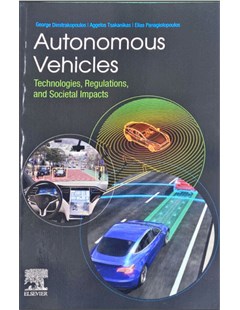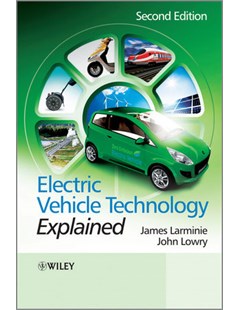Autonomous Vehicles Technologies, Regulations, and Societal Impacts
Autonomous Vehicles: Technologies, Regulations, and Societal Impacts explores both the autonomous driving concepts and the key hardware and software enablers, Artificial intelligence tools, needed infrastructure, communication protocols, and interaction with non-autonomous vehicles.
2021
Autonomous Vehicles: Technologies, Regulations, and Societal Impacts explores both the autonomous driving concepts and the key hardware and software enablers, Artificial intelligence tools, needed infrastructure, communication protocols, and interaction with non-autonomous vehicles.
It analyses the impacts of autonomous driving using a scenario-based approach to quantify the effects on the overall economy and affected sectors. The book assess from a qualitative and quantitative approach, the future of autonomous driving, and the main drivers, challenges, and barriers. The book investigates whether individuals are ready to use advanced automated driving vehicles technology, and to what extent we as a society are prepared to accept highly automated vehicles on the road.
Building on the technologies, opportunities, strengths, threats, and weaknesses, Autonomous Vehicles: Technologies, Regulations, and Societal Impacts discusses the needed frameworks for automated vehicles to move inside and around cities. The book concludes with a discussion on what in applications comes next, outlining the future research needs.
Contents:
George Dimitrakopoulos, Autonomous Vehicles Technologies, Regulations, and Societal Impacts, Elsevier, 2021
 |  |  |
Autonomous Vehicles Technologies, Regulations, and Societal Impacts | Autonomous Vehicles and Future Mobility | Electric vehicle technology explained |
Thứ Tư, 18:08 01/03/2023
Copyright © 2018 Hanoi University of Industry.